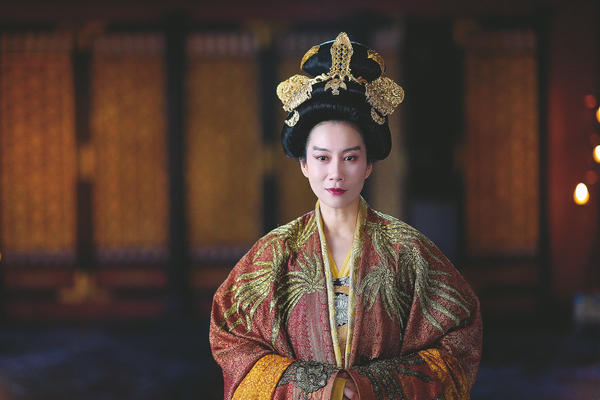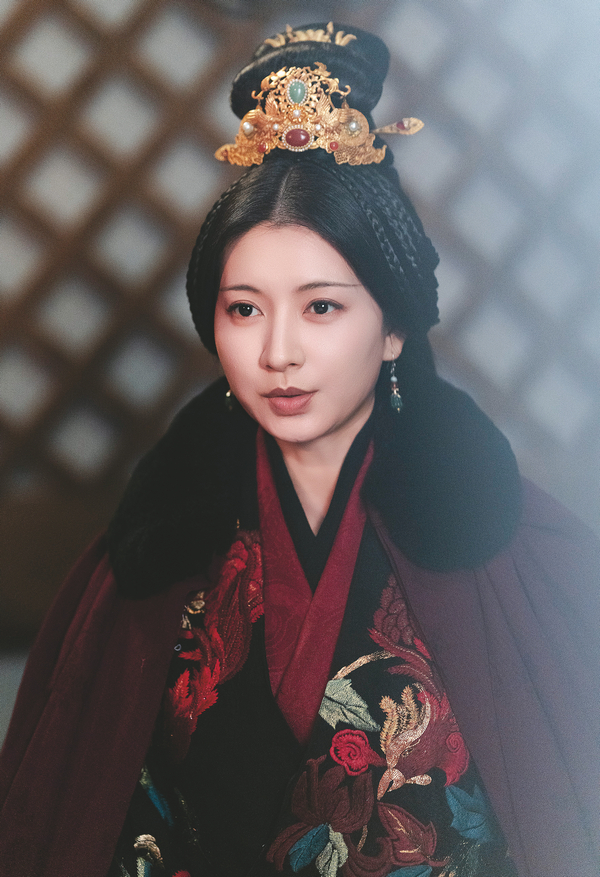

With each of the four episodes featuring one famous woman, the documentary recounts the stories of Li, as well as Wu Zetian, China's first and only empress; Princess Jieyou, whose political marriage to a ruler of the Wusun Kingdom and later marriages to his successors benefited the Western Han Dynasty (206 BC-AD 24);and Shen Shou (1874-1921), a Suzhou embroidery legend who earned recognition in the West.
Wang says it's the rising popularity of female-centered movies and TV shows that inspired them to produce the documentary.
However, the creative team soon encountered their biggest challenge — historical records of women are far less comprehensive than those of men, with some women only mentioned by surname and a few lines of text.
Additionally, demonstrating the lives of these historical figures within a condensed span of 45 minutes per episode presented another challenge, says Zhu Lexian, the executive producer and head of the documentary production sector at Tencent Video, the show's financier.
Zhu reveals that the team ultimately decided to focus on a special period in each protagonist's life, examining how they fought against adversity with resilience and intelligence.
"We don't want to just revisit the four women's most glorious moments. Instead, we aim to explore the hardships and struggles they endured behind the scenes," adds Wang.

Unconventional storytelling
Yang Le, chief executive officer of Huanyu Entertainment Co Ltd, the show's production company, reveals that the idea benefits from the company's years of experience in producing costume dramas, providing the month-long shoot with an abundant supply of exquisite clothing and jewelry.
With an unconventional approach to storytelling, the documentary includes a voice-over that acts as an invisible second person, engaging with the protagonists as they navigate their inner struggles.
Actress Tao Xinran, who plays poet Li in the first episode, says it felt like a dream coming true when she was asked to portray the literary legend.
After much preparation, Tao gained a comprehensive understanding of Li, a free-spirited genius who strived for free will, even at a painful cost.
During the Song Dynasty (960-1279), the law did not allow women to file for divorce. Li came up with a drastic way to end her suffering in her second marriage. After discovering Zhang had forged documents to obtain an official position, she exposed him. As a result, Zhang was punished with exile, dissolving their marriage. However, Li was also sentenced to jail for violating the law prohibiting wives from suing their husbands.
"Despite Li's poems being known for their gentle, restrained and soft tones, she was a woman of remarkable courage and determination," comments Tao.
Wu Zetian's story illustrates that even the most powerful woman couldn't act on her desires. Rising from Tang Dynasty (618-907) Emperor Gaozong's queen to founding the Zhou Dynasty (690-705), she faced the difficult decision of choosing a crown prince in her later years.
Whether Wu chose her son or nephew, she risked her posthumous title being replaced by her husband or brother, jeopardizing the fate of the Zhou Dynasty. In China's patriarchal society, which adhered to a father-to-son inheritance norm, this became an unsolvable dilemma for Wu.
The Zhou Dynasty ultimately ended with Wu as its only ruler. "From a modern perspective, it was also caused by gender inequality. That has interested me most," says Wang.